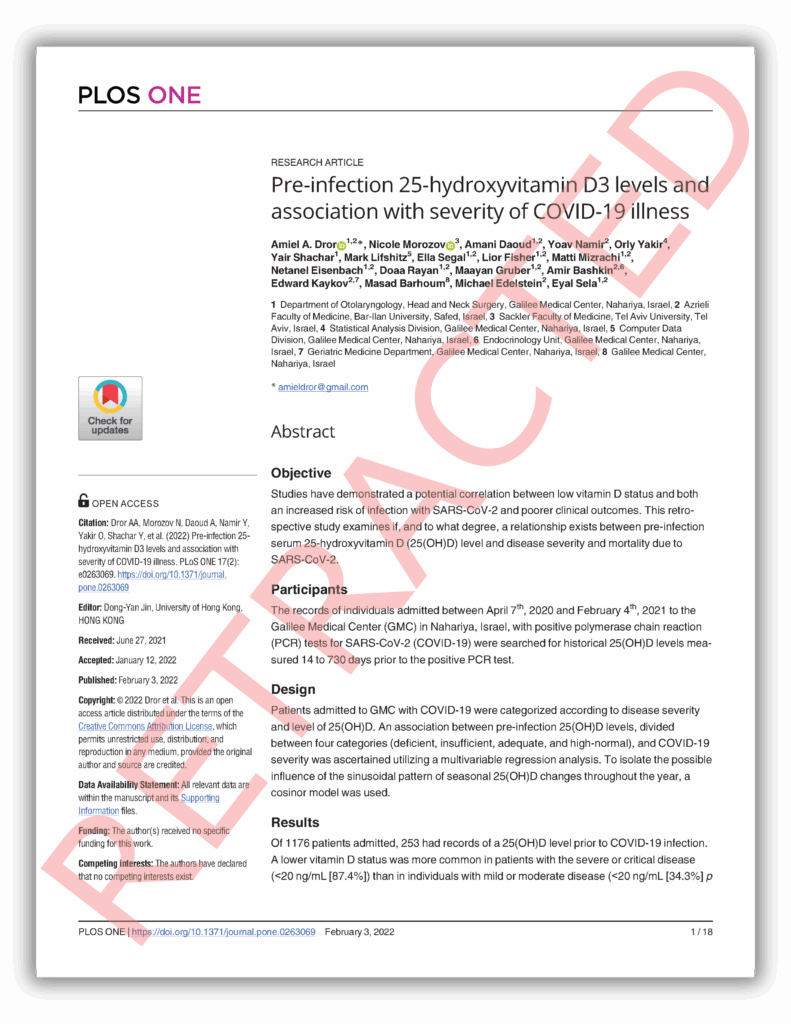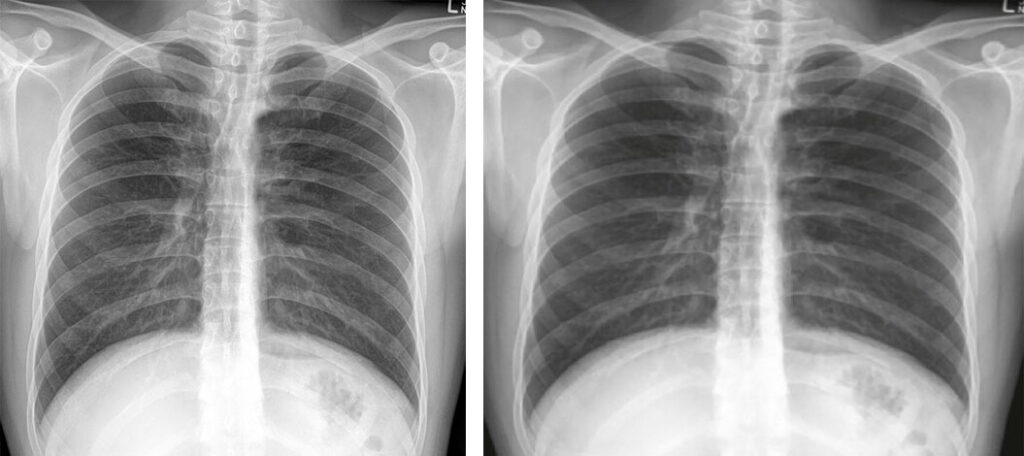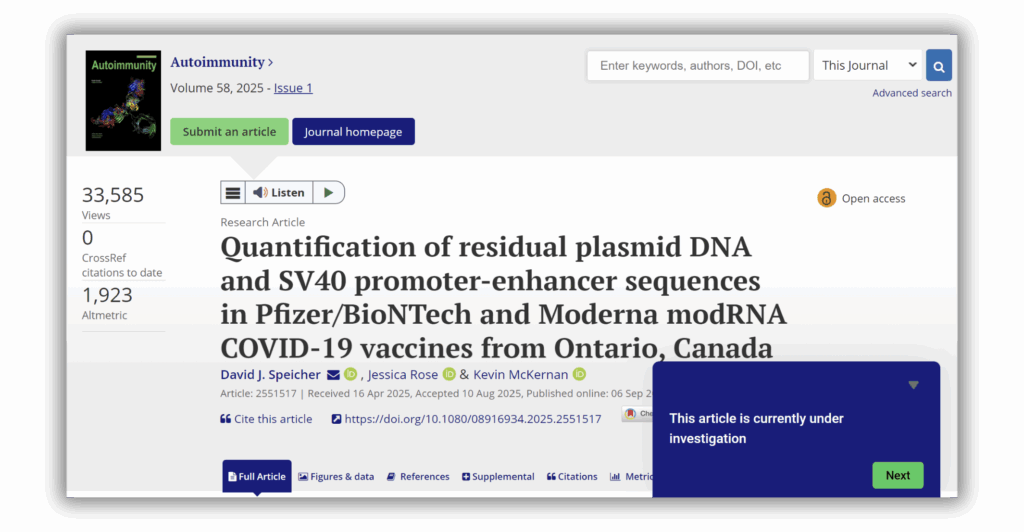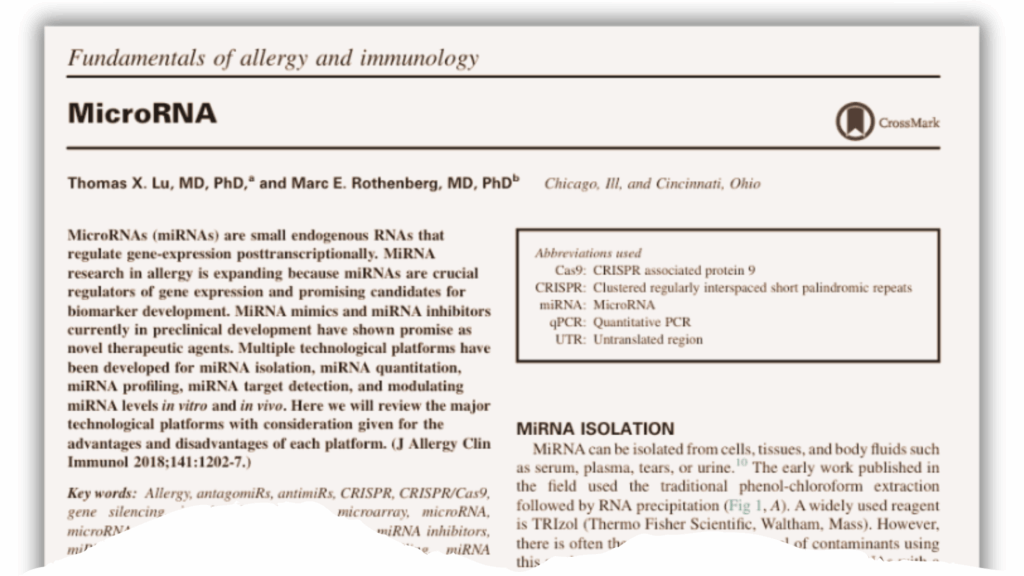PLOS One has retracted a paper linking vitamin D levels and COVID-19 morbidity three years after a critic flagged the data in the study as “deeply bizarre.” The authors objected to the retraction, with one calling it “outrageous” and pointing to flaws in the published notice.
The article, which appeared in February 2022, claimed people with low levels of vitamin D were at increased risk for severe COVID-19 and were more likely to die of the disease than other patients. It has been cited 65 times, according to Clarivate’s Web of Science.
The paper had a “huge, immediate impact,” said Gideon Meyerowitz-Katz, a senior research fellow from the University of Wollongong in Australia, citing the fact that the paper had been viewed over 1 million times within six weeks of being published. The article joins others, many also flagged by Meyerowitz-Katz, purporting to find links between vitamin D intake and COVID-19 severity that have been retracted or removed.
Continue reading Authors defend retracted paper on vitamin D and COVID-19 called ‘deeply bizarre’ by critic








